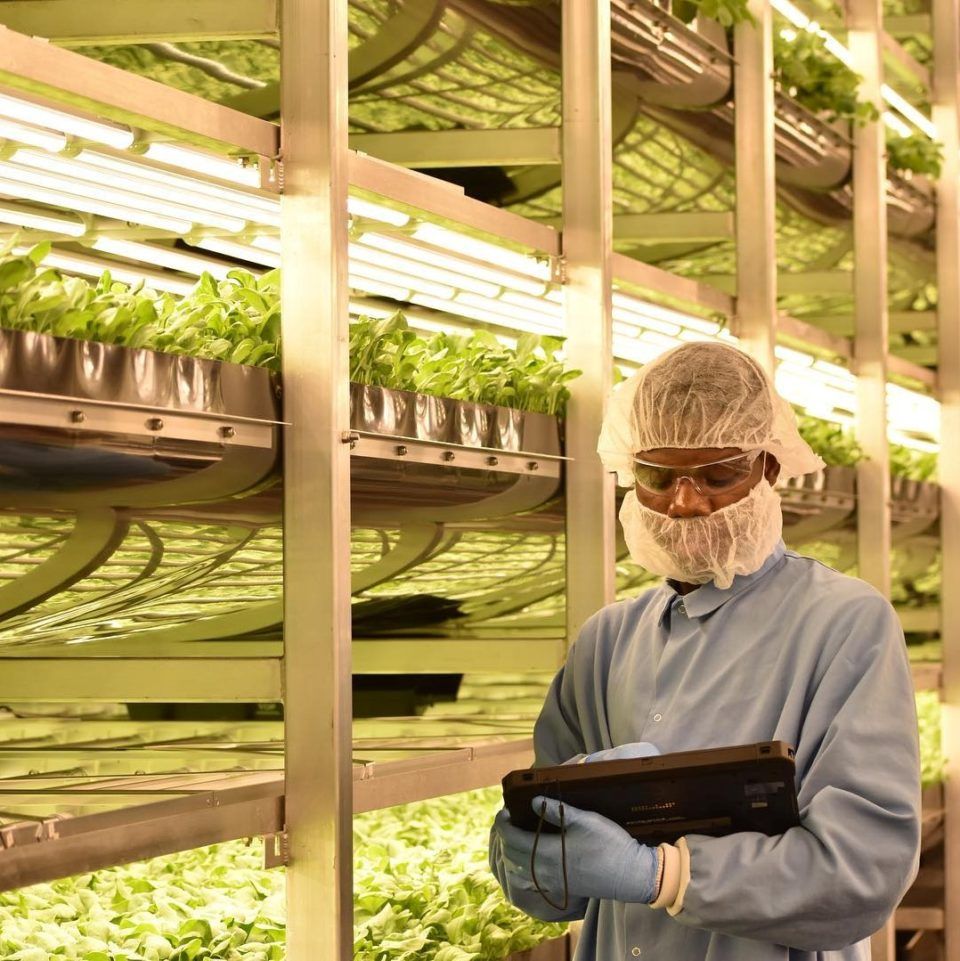
🌾 UAE is investing $100 million in indoor farming as it tries to become more self-sufficient
As a region with little water, extreme heat, and not much farmable land, the United Arab Emirates imports 80% of its food. Indoor farming may help them go more local.
Share this story!
In a new investment announced earlier this month, the Abu Dhabi Investment Office is putting $100 million into four agtech companies.
- Madar Farms, a startup that is building the world's first artificially lit indoor tomato farm.
- Aerofarms, a New Jersey-based vertical farming company that will build a massive new R&D center.
- RDI, a startup developing a new irrigation system that makes it possible to grow plants in sandy soil.
- RNZ, a startup that develops fertilizers that make it possible to grow more food with fewer resources.
The investments are the first in a larger $272 million program to support agtech.
“Agtech will be part of the solution to how we can better utilize water, how we can be more efficient, and how we can drive yield in farms,” says Tariq Bin Hendi, the director general of the Abu Dhabi Investment Office. “We’re embracing technology because we know it’s the future.”
Indoor farming, which grows food in far less space and with far less water than traditional agriculture and without being subject to extremes in outdoor temperatures, makes a lot of sense for the area. “First, we have to deal with a very limited supply of arable land,” says Abdulaziz Al Mulla, CEO of Madar Farms. “So any kind of production method that we use has to be one that’s land agnostic. Secondly, the current way of production draws far too much on our precious water reserves. At the rate we’re going, we might run out of water within the next 50 years.” The company’s hydroponic systems, like those at other indoor farms, can recycle around 95% of the water that they use. The new 53,000-square-feet farm is set to be complete by the end of the year and begin production early in 2021; it’s also designed to expand. The first building covers around 53,000 square feet, 10% of the space that the company has leased in the industrial park.
In Abu Dhabi, Aerofarms will use the new investment to build a 90,000-square-foot facility to continue its research in how to grow crops indoors, including new research in breeding seeds that are optimized for indoor growing conditions. “We have been talking to people in the UAE for a long time,” says Aerofarms CEO David Rosenberg. “Part of our business model, the way we think of it is: Where’s our value proposition most strong? Where are there a lot of people without access to fresh food? And it’s basic—where there is water scarcity, arable land scarcity.”

More than 60 engineers and scientists will study plant science and automation at the new center. “We want to grow more plants, know how to grow better, know how to grow with lower capital cost and operating costs,” Rosenberg says. “That all stems from an ability to understand plants.” By growing in a controlled environment, he says that it’s easier to understand the variables that affect factors like growth rate, nutrition, and taste. In the past, the company has focused mostly on environmental factors, such as the right “light recipe” or temperature to make plants grow well. Now it will also study breeding. “Most seed breeders work to optimize drought resistance, or pest resistance,” he says. “Here, because it’s fully controlled, we get to say, you know what, let’s focus on taste, texture, yield, nutrition.”
The new investments add to a small but growing indoor agriculture sector in the region. The indoor farming industry is still nascent, and it’s possible that the new wave of support in the UAE could help push it forward. The challenges that are most pronounced in the desert also exist elsewhere: In the U.S., for example, most lettuce is grown in California and Arizona, where water shortages will continue to increase with climate change.
Abu Dhabi and Dubai are also testing technology designed to help in other parts of the food system, including tech that can reduce food waste in restaurants, drones that can map plants on outdoor farms to save resources, and artificial caves in the Persian Gulf that are meant to help fish stocks grow. “It really has to be comprehensive coordination across different solutions, if you really want to build a truly resilient, food-secure sector,” says Al Mulla.